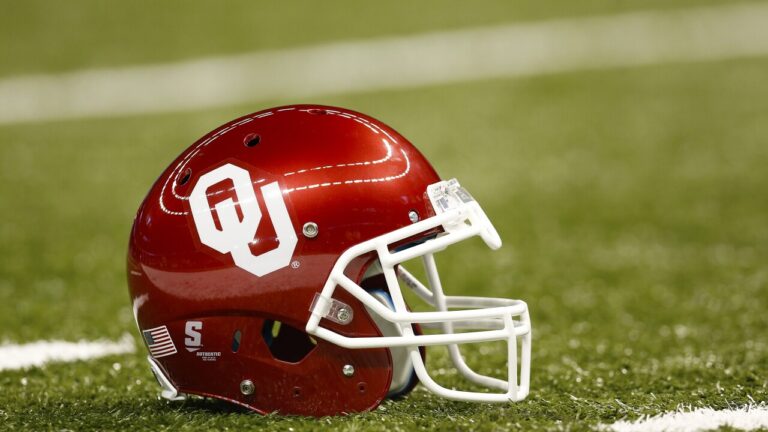### The Reasons Behind the Oklahoma Sooners’ Latest Quarterback Switch: Insights from Brent Venables
The Oklahoma Sooners have a storied history of producing elite quarterbacks, and their latest switch at the position has sparked significant conversation among fans and analysts alike. Head Coach Brent Venables recently made the decision to alter the quarterback depth chart, a move that has implications not just for the current season but for the future of the program as well. Here, we explore the reasons behind this strategic decision, drawing on Venables’ insights and the broader context of the team’s performance.
#### 1. Performance Issues
One of the primary reasons for the quarterback switch is the performance of the current starter. Despite high expectations, the incumbent quarterback struggled with consistency. In his recent outings, issues such as turnovers, accuracy, and decision-making became glaringly evident. Venables has emphasized the importance of protecting the football and executing the game plan effectively. By switching quarterbacks, he aims to invigorate the offense and restore confidence to a unit that has underperformed.
#### 2. Spark of New Energy
Coaches often look for a “spark” to reignite their team’s performance, especially when results are lacking. Venables expressed his belief that a change at quarterback could bring new energy to the locker room and the field. This shift isn’t just about the player’s skills; it’s also about the mindset and enthusiasm they bring. New players often provide a different perspective and renewed hope, which can be contagious and uplift the entire team.
#### 3. Development and Future Planning
Oklahoma is known for its developmental programs, and part of Venables’ strategy involves preparing for the future. The Sooners have talented quarterbacks waiting in the wings, and giving them playing time can be crucial for their growth. By making a switch now, Venables can evaluate younger talent in high-pressure situations, ensuring that the program is set up for long-term success. This aligns with his vision of building a sustainable and competitive program, capable of contending for championships year after year.
#### 4. Scheme Adjustments
Every quarterback has a unique skill set, and sometimes a switch is needed to better align a player’s abilities with the team’s offensive scheme. Venables and his coaching staff have a clear vision of how they want to execute their game plan, and they need a quarterback who can effectively implement it. The new starter may bring different strengths to the table—be it mobility, arm strength, or decision-making—allowing the offensive coordinators to tailor their approach to exploit opposing defenses more effectively.
#### 5. Reaction to External Pressure
The scrutiny that comes with being the head coach of a high-profile program like Oklahoma can be immense. Venables is acutely aware of the expectations from fans, alumni, and the media. In times of adversity, making bold decisions can sometimes be necessary to show that the coaching staff is willing to make tough calls for the betterment of the team. This quarterback switch can be seen as a proactive measure to counteract mounting criticism and demonstrate a commitment to winning.
#### 6. Player Morale and Leadership
Leadership within the team is critical, especially in high-pressure situations. Venables has mentioned the importance of having a quarterback who can rally the team and maintain morale. A fresh face can invigorate the locker room and establish a new dynamic among the players. This is especially true if the new quarterback has a history of strong leadership qualities, which can help unify the team as they navigate challenges throughout the season.
#### 7. Looking Ahead to Big 12 Competition
As the Sooners continue to compete in the Big 12, the stakes are high. Venables understands that the path to a successful season often requires adaptability. The switch at quarterback can be a strategic move aimed at improving the team’s chances in conference play and beyond. With upcoming matchups that could shape the direction of the season, the decision to change quarterbacks reflects a commitment to competing at the highest level.
#### Conclusion
Brent Venables’ decision to switch quarterbacks for the Oklahoma Sooners is multifaceted, grounded in performance analysis, team dynamics, and long-term planning. While immediate results will ultimately dictate the success of this move, it underscores the constant evolution of college football and the strategic thinking required to stay competitive. For Venables and the Sooners, this switch is about more than just one game; it’s about laying the foundation for future success and fostering a culture of excellence. As the season unfolds, all eyes will be on how this decision impacts the team’s trajectory and the development of the new starter.


